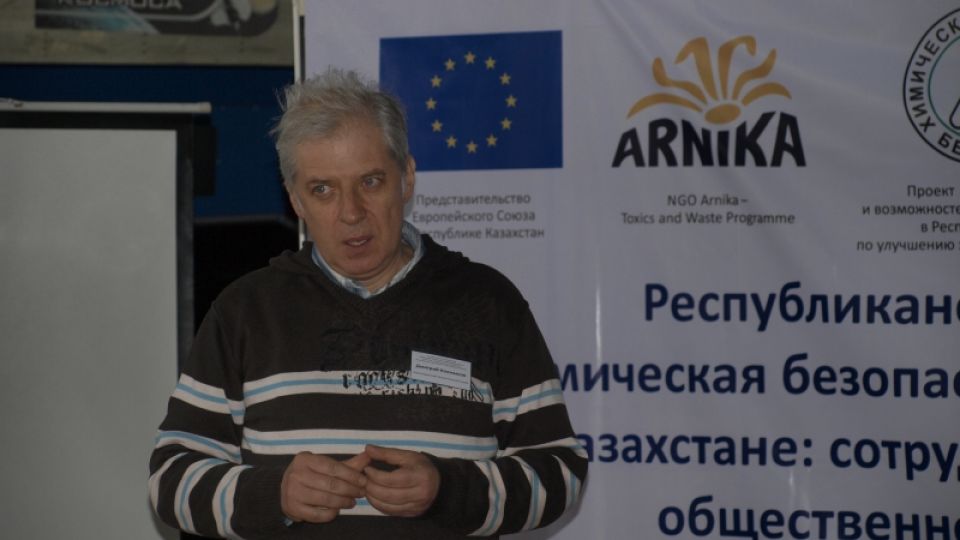On 30 April 2015, experts from Kazakhstani non-governmental organizations EcoMuseum and CINEST, and their partners from Arnika and Chemistry and Technology University Prague, the Czech Republic, presented results of their joint two-and-half year project titled "Empowering the civil society in Kazakhstan in improvement of chemical safety" (3) funded by the EU with the grant amounting EUR 247,834.
Over 150 samples of soil, river sediments, fish, and chicken eggs were analysed for wide range of toxic chemicals including heavy metals and persistent organic pollutants (1) such as dioxins and polychlorinated biphenyls. The project was focused on revealing new data on pollution at seven sites (2) in Central and Eastern Kazakhstan and supporting local communities in access to the information and enforcing solutions of local problems.
Chemical analyses revealed serious pollution at several sites that can affect quality of drinking water, food products, and threaten health of local communities. International experts were invited to suggest solutions for contaminated sites such as Balkhash, Temirtau, river Nura, Glubokoe, and Stepnogorsk. National and regional authorities, as well as civil society organizations, discussed the results at a conference in Karaganda. During the two-and-half year project, 41 workshops, round tables, and public debates were organized which were attended by 1,456 participants representing state and regional authorities, industry, academia, and civil society. The Public Consultation Centre in Karaganda provided citizens with 491 consultations and organized lectures for 430 pupils and students. Five local civil society organizations were awarded with small grants supporting their own activities to improve chemical safety in their home towns.
"Kazakhstan cannot prosper and lead a "green economy" while its citizens suffer from polluted water, air, and food products. There are number unaddressed old environmental burdens in our country, but due to carelessness of many industrial companies, new threats arise as well. We believe that results of our joint project will help us to deal with these challenges," stated Dmitriy Kalmykov, Director of EcoMuseum Karaganda.
Jindrich Petrlik, Director of Arnika – Toxics and Waste Programme from the Czech Republic noted that "Openness to new environmentally friendly technologies for remediation of contaminated sites, access to information, and cooperation between the public and the state were prerequisites of good solutions which we promoted within our project. We believe that experience of European countries can help Kazakhstan to find a balance between economic development and protection of the environment and public health".
Notes:
((1) Persistent organic pollutants (POPs) are a large group of substances that stay in the environment, harm the health of humans and animals and cause toxic poisoning of wide spectrum. For more information please see http://en.wikipedia.org/wiki/Persistent_organic_pollutant
(2) It comes to Balkhash, Ekibastuz, Daryal-U, Temirtau, Nura river, Glubokoe and Stepnogorsk.







